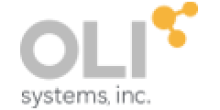11th Process Safety Management Mentoring (PSMM) Forum
The Process Safety Management Mentoring (PSMM) Forum is one of five parallel symposia tracks that comprise the Global Congress on Process Safety (GCPS). The PSMM Forum is a tutorial-based track aimed at professionals who may be new to the field of process safety, those who now have a management role in process safety, and to those interested in strengthening their knowledge of process safety. The principle behind the PSMM Track is to highlight tools, techniques, and lessons learned which would enhance delegates’ understandings of the applications of process safety management.
18th GCPS Conference Program - Draft
Encouraged topics for this conference include, but are not limited to:
- Tutorials in Process Safety
- The Day PSM Hit Home
- What Should be Keeping You Up at Night But Isn’t: Things Everyone Should Know about Process Safety
- What I Need to Know when I Get Up in the Morning
- What is Hiding Under the Radar?
- PSM Story Time
- Conduct of Operations
- What's Wrong with This Picture: Can you spy the PS hazard?
PSMM Chair & Vice Chair:
-
Katie Mulligan & Jennifer Mize, PSMM_chair@aiche.org
Session Topic Descriptions:
Tutorials in Process Safety – six sessions in partnership with other tracks in the 2020 GCPS for Call for Abstracts (CFA)
The objective of these sessions is to a provide process safety introductory and basic key skill sessions tutorials for attendees and are co-sponsored by three main symposia tracks in the Global Congress: Loss Prevention Symposium (LPS), the Center for Chemical Process Safety (CCPS) International Conference, and the Process Plant Safety Symposium (PPSS). Examples of topics include the following:
- Loss Prevention Symposium (LPS) – focused on technological advances in process safety
-
Potential LPS Tutorial session(s) include modeling, consequence, and risk analyses of fires, explosions (including combustible dusts, detonation vs. deflagration), a new development in failure databases, toxic releases, and reactive chemicals; siting of buildings and equipment; explosion prevention; pressure relief systems; and fire protection. Dust explosion safety continues to be an area of interest and development for loss prevention professionals. This session will provide an introduction to combustible dust hazards and their mitigation. The session will teach the attendees the characteristics of dusts that create a combustible dust hazard, introduce laboratory analysis techniques that are used to characterize the explosibility of dusts, and introduce design and safety management concepts that will aid a facility in identifying, managing, and mitigating combustible dust hazards.
-
-
Center for Chemical Process Safety (CCPS) International Conference – focused on promoting and advancing process safety management practices
-
Potential CCPS Tutorial session(s) include Risk-Based Process Safety (RBPS); understanding process hazards and risks; when to use which process hazard analysis method; inherently safer design, managing process risks; extreme weather safety planning; and learning from the experience of senior colleagues.
-
- Process Plant Safety Symposium (PPSS) – This tutorial is focused on the application of best practices for personnel at the plant level
- PPSS Tutorial topics include practical solutions that are immediately useful to resolve process safety issues – whether the issues are related to conduct of operations / operational discipline, mechanical integrity, conducting good hazard analyses, or anything else that would help a new process safety professional make an immediate impact.
The Day PSM Hit Home - focused on sharing first-hand experiences that led to a personal commitment to process safety…
Many process safety professionals have lived and worked through “learning experiences” that made them realize just how critical a good process safety program is. The three speakers will share how significant incidents changed their view on how they understand and apply process safety principles as a result of the experience. Prospective speakers, including veteran and newer professionals, that are willing and able to share such an experience are encouraged to submit an abstract briefly outlining the event and lessons learned.
What Should be Keeping You Up at Night But Isn’t: Things Everyone Should Know about Process Safety – focused broadly on hazard recognition and lessons learned from careers in Process Safety.
Hazards may go unrecognized or underappreciated due to a variety of influences. Ignorance of the hazard is a convenient excuse after an incident. This session is intended to be a preemptive strike at this ignorance. Unlike the Day PSM Hit Home, talks in this session need not be motivated by an incident. Rather, talks should focus on the incident that hasn’t occurred, and how to recognize it. Example topic areas include investigation and sharing of lessons learned from near misses; hazard identification; operational discipline; human reliability, what lies behind the “mass of safety metrics”.
Presentations that future client/consultant shared case studies that would provide learning outcomes that other companies could follow are encouraged to submit here.
What I need to know when I get up in the morning – focused on strategies and lessons to be learnt when bridging the gap between “the newly qualified or new to the role” and professional expectations in the field of Process Safety.
This session will share best practices and lessons learned for mid-and late-career professionals in supervisory roles, tasked as mentors to young professionals in the field of Process Safety, while also providing benefit to those newer to the field. Example topic areas could include: Strategies for backfilling PSM expertise; Long-term mentorship; What to expect/not expect from recent graduates or those new to Process Safety; how/can E-Learning/Virtual training fill the knowledge gap; What should “Competency” for young professionals look like, common standards and ensuring compliance; Process Safety culture and how it applies to new engineers; why must hazardous event frequency be driven so low.
Session goal is to give at those new to process safety and those who seek to expand or refresh their knowledge an opportunity to hear experienced professionals reflect on their current practices and discuss some of the current challenges Safety Professionals face in their daily activities.
This could also be an opportunity for client/consultant shared case studies that would provide learning outcomes that other companies could follow.
What is Hiding Under the Radar? – focused on overlooked process safety and reliability issues.
Protection and mitigation measures are put in place, but they may not always be implemented and maintained in a manner that assures continued availability and reliability. How do we identify and correct these issues? Potential topic areas include examples from mechanical systems (piping & other fixed or rotating equipment), administrative and procedural controls, basic process control systems and alarms, safety instrumented systems, fire protection systems, management of hot works, critical utilities, infrastructure, and containment systems. What does “PSM critical” or “important to PSM” mean?
PSM Story Time – focused on the importance of using stories to relate process safety lessons, experiences and practices.
Conveying the elements of managing process safety is often challenging due to the use of technical jargon and complex terms which may not always be relatable to intended recipients. To improve knowledge transfer in a form more understandable by a broader audience, a simple tool that has been used since the dawn of time can be deployed: telling a good story!
Stories are effective in communicating complicated topics. Since childhood, many can remember stories being used to teach and instruct on life lessons. Do you remember Little Red Riding Hood? What about The Little Engine that Could? Or maybe The Ugly Duckling? There is likely a story that has impacted your life journey. The same storytelling methods can be as effective and impactful to process safety concepts!
The objective of this session is to emphasize the importance of using stories to reinforce process safety principles and expertise. This call for abstracts invites those having a story to tell to submit a paper and presentation. Unlike other sessions, the abstracts can relate to storytelling without it being directly related to a process safety event. Potential paper and presentation examples include using a children’s book to teach process safety lessons, a creative way you have told a story to simplify technical subjects, PSM-related analogies that resonate with your audience, clever stories shared with you in your process safety career, etc.
Conduct of operations, or operational discipline, is the execution of operational or management tasks in a structured manner. Procedure compliance, adherence to approved operating limits, emergency shutdown authority, stop work authority, and other activities are all critical attributes of process safety. Other critical attributes and activities in process safety programs, e.g., fitness for duty, fatigue management, formal shift turnover, etc. are also part of Conduct of Operations. These attributes extend or supplemental the classic elements of process safety programs. This element of process safety/RBPS is very sensitive to the prevailing process safety culture. This session invites speakers to describe the principles and features of the management systems that support Conduct of Operations, the influence of culture on the attributes of Conduct of Operations, as well as examples of programs to improve it and metrics to monitor it.
What's Wrong with This Picture: Can you spy the PS hazard?
Many new engineers have the responsibility to review existing equipment, configurations, and implement changes in the field, but may lack the experience that might be necessary to identify, or “spy” if something may pose a Process Safety hazard.
This session invites submissions that focus on the identification of hazards or traps in the field. This can include strategies for successful field walkthroughs, with an emphasis on visuals. Potential topics (non-exhaustive) may include proper installation of relief devices, discharge locations, and chemical storage or chemical loading locations, and awareness best practices.















